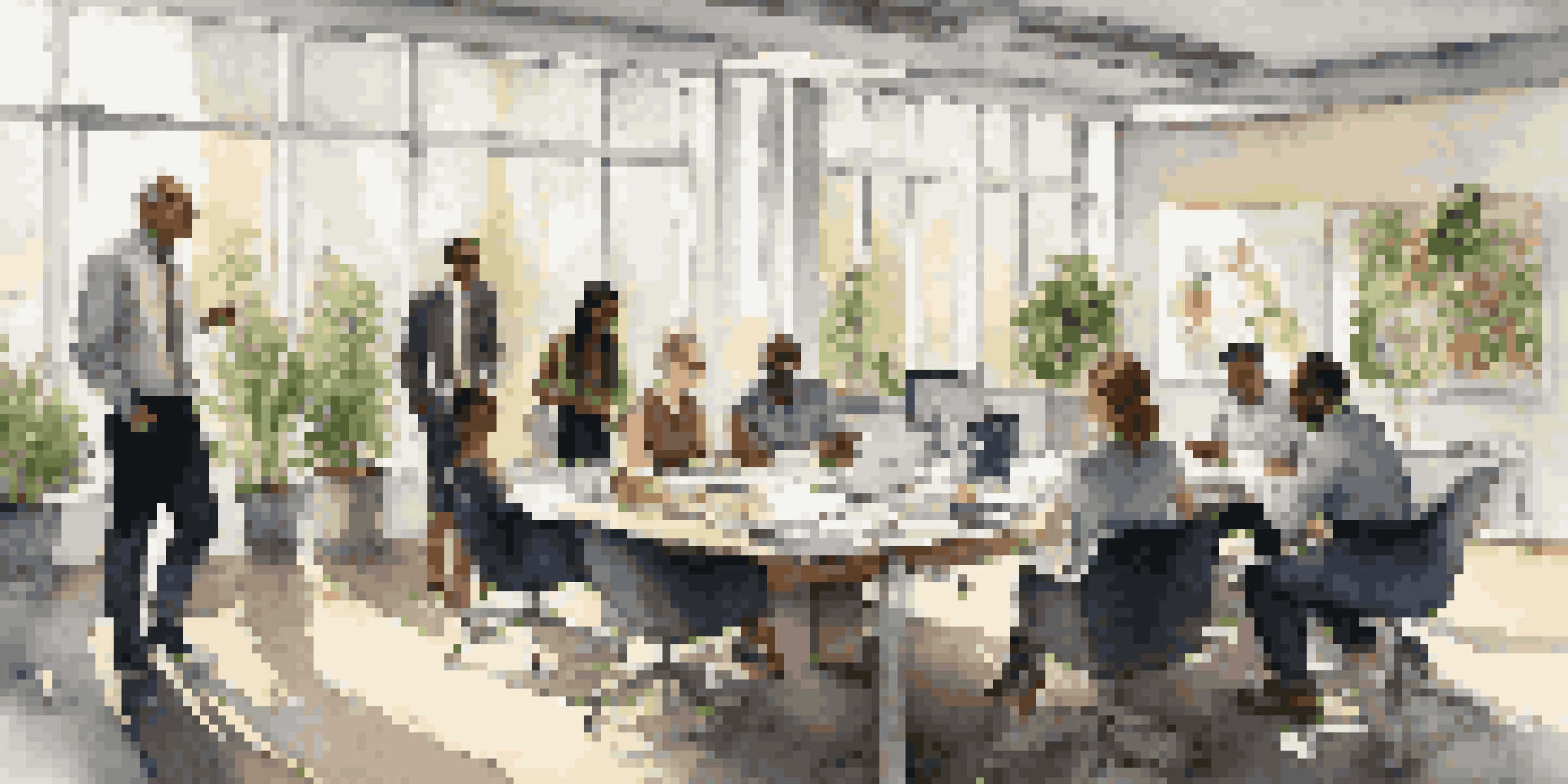The Power of Adaptability in a Diverse Skill Set

Understanding Adaptability and Its Importance
Adaptability is the ability to adjust to new conditions and challenges effectively. In today's fast-paced world, where change is the only constant, being adaptable is crucial for success. It allows individuals to respond to unexpected situations with resilience and innovation.
It is not the strongest of the species that survive, nor the most intelligent, but the one most responsive to change.
Think of adaptability as a survival skill in the wild. Just as animals adjust their behaviors to thrive in different environments, professionals must learn to pivot and embrace change. Those who can adapt are often more successful in navigating their careers.
Moreover, adaptability is not just about reacting to change; it's also about anticipating it. Developing a diverse skill set equips you to handle a variety of situations, making you more valuable in any workplace.
The Role of a Diverse Skill Set in Adaptability
Having a diverse skill set means possessing a range of abilities that can be applied in different contexts. This versatility enhances your adaptability, allowing you to tackle challenges from various angles. For instance, someone skilled in both project management and creative problem-solving can approach a project with a unique perspective.

Imagine a chef who can not only cook but also manage a kitchen and design menus. When faced with a staffing issue, they can adapt by stepping into different roles seamlessly. This flexibility makes such individuals indispensable in their teams, as they can fill gaps wherever needed.
Adaptability is Key for Success
Being adaptable allows individuals to effectively respond to change and thrive in their careers.
Ultimately, a diverse skill set empowers you to be more resourceful. It enables you to draw from different experiences and knowledge areas, fostering creativity and innovation in your problem-solving approach.
Examples of Adaptability in Action
Consider the tech industry, where professionals often juggle various roles due to rapid advancements. A software engineer might need to learn new programming languages or tools to stay relevant. This constant learning and adaptation are vital for career growth and job security.
The measure of intelligence is the ability to change.
Take the example of a marketing specialist who diversifies their skills by learning data analytics. When the marketing landscape shifts towards data-driven strategies, they can pivot their approach, ensuring their campaigns remain effective. This adaptability not only enhances their value but also boosts the company's performance.
These real-world examples highlight how adaptability in a diverse skill set can lead to personal and professional success. They demonstrate that the ability to learn and adjust is often more critical than any single skill.
Cultivating a Mindset for Continuous Learning
To harness the power of adaptability, one must foster a mindset geared towards continuous learning. This means being open to new ideas, experiences, and feedback. Embracing lifelong learning allows you to expand your skill set and remain relevant in your field.
Consider setting aside time each week for personal development. Whether it's taking an online course, attending workshops, or simply reading industry-related articles, every effort counts. This commitment to growth is what differentiates adaptable individuals from the rest.
Diverse Skills Enhance Flexibility
A diverse skill set empowers professionals to tackle challenges from different angles, making them invaluable in any team.
Moreover, a continuous learning mindset encourages curiosity. When you're curious about the world around you, you're more likely to seek out new experiences and skills, further enhancing your adaptability.
The Impact of Adaptability on Team Dynamics
Adaptability plays a significant role in fostering positive team dynamics. When team members possess diverse skills and are adaptable, they can collaborate more effectively. This synergy allows teams to pivot quickly in response to changing project demands.
For instance, in a brainstorming session, an adaptable team member can switch between various roles, whether it's generating ideas, providing feedback, or facilitating discussions. This versatility promotes inclusivity and encourages everyone to contribute, leading to better outcomes.
Furthermore, adaptable individuals can help ease tensions during challenging times. Their ability to remain calm and flexible can inspire confidence in their peers, creating an environment where innovation and creativity thrive.
Overcoming Challenges Through Adaptability
Challenges are an inevitable part of any journey, but adaptability can help you navigate these hurdles more smoothly. When faced with setbacks, individuals with diverse skill sets can quickly reassess their strategies and find alternative solutions. This resilience is crucial for overcoming obstacles.
For example, during a global pandemic, many businesses had to pivot their operations online. Those with adaptable employees who could learn new technologies quickly were better positioned to survive and thrive. This adaptability turned challenges into opportunities for growth.
Embrace Change for Growth
Embracing change fosters personal growth and leads to new opportunities, enhancing overall life satisfaction.
Ultimately, embracing adaptability allows you to face challenges head-on, transforming potential roadblocks into stepping stones for success.
Embracing Change for Personal Growth
Adapting to change is not just about professional skills; it's also essential for personal growth. As we navigate different life stages, being open to change can lead to incredible opportunities. Whether it's moving to a new city or starting a new hobby, embracing change enriches our lives.
Think about how learning new skills can enhance your confidence. Each time you step out of your comfort zone, you expand your horizons and discover new passions. This journey of self-discovery ultimately contributes to a more fulfilling life.

By embracing change and seeking out diverse experiences, you cultivate adaptability—not just as a skill, but as a way of life. This holistic approach to adaptability can lead to deeper connections and a more meaningful existence.